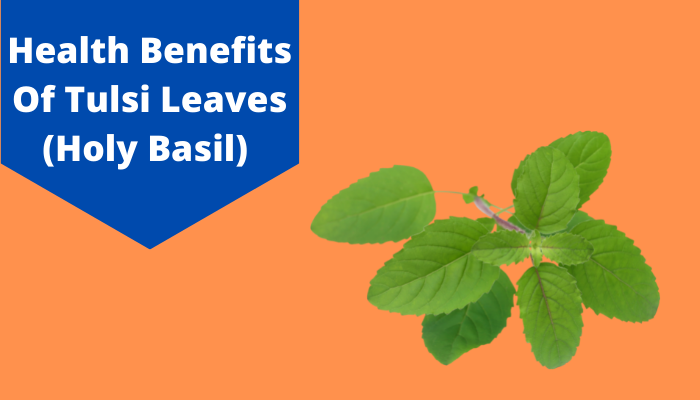Ayurveda hails about the powers of Tulsi or Holy Basil leaves. Grown mainly in India, tulsi leaves boast various properties that are good for our health. Originally known as the ‘Queen of herbs,’ Tulsi ranks first in the Ayurvedic herbs list. They also use this juice to cure illnesses and in Hindu rites and ceremonies. Reading about the multifarious tulsi benefits will motivate you further to consume these leaves or their extracts to stay healthy. In this article, we aim to acquaint you with all the tulsi plant benefits and tulsi uses that this herb is a true blessing for mankind.
What is Tulsi - Nutritional Value of Tulsi
What makes tulsi leaves the best leaves in Ayurveda? Let us check the nutrients present in these holy basil leaves to learn about this. Tulsi leaves contain the following:- Potassium
- Sodium
- Carbohydrates
- Protein
- Iron
- Magnesium
- Fibre
- Calcium
- Vitamin B6, C, and D
10 Incredible Health Benefits of Tulsi Leaves
Here is a list of 10 benefits of tulsi leaves for your reference:1. Tulsi is a Natural Immunity Booster
When the world was looking for different immunity-boosting foods and alternatives during the COVID-19, we Indians were very sure of the immunity-boosting properties of our very own tulsi leaves. Full of Vitamin C and zinc, these leaves are natural immunity boosters to help strengthen our immunity system.2. Analgesic and Antipyretic Properties
Tulsi leaves are rich in anti-viral, anti-bacterial, and antipyretic properties. All these make these leaves ideal to fight infections of any type. Drinking fresh tulsi juice with black pepper powder helps to cure fever effectively. Moreover, the Eugenol compound present in tulsi acts as a natural painkiller.3. Super Herb for Reducing Stress
Whether you know it or not, tulsi leaves are rich in Ocimumosides A and B compounds. Both these compounds are effective in reducing stress and maintaining a balance between dopamine and serotonin levels in the brain.4. Makes Your Heart Healthy
You can rely on the power of holy basil to keep your heart healthy. These leaves have the potential to reduce your blood lipid content and prevent the chances of stroke, ischemia, and hypertension. All thanks to its antioxidant properties.5. Possesses Anti-Cancer Properties
It is important to note that the tulsi leaves have phytochemicals that prevent all sorts of cancers, including lung, mouth, skin, and liver. The identified leaves contain antioxidants that have a role to play in halting the growth of cancer.6. Offers Natural Relief Against Common Cold and Cough
The pandemic made everyone aware of the effectiveness of tulsi leaves against common cold and cough. This herb is effective to offer relief against the common cold, cough, and other respiratory problems like bronchitis and asthma.7. Effective Against Kidney Stones and Gout
Another advantage of using tulsi leaves or holy basil is that it helps to reduce the uric acid concentration in the body and prevents the formation of kidney stones. These leaves are most beneficial to Gout and arthritis patients because they are a natural diuretic.8. Natural Blood Purifier
However, the uses of tulsi highlighted above are not a comprehensive list of the benefits of the plant. Holy basil is quite similar to neem leaves as it is also known to be a natural blood purifier. It plays a role in expelling toxins from the digestive tract. Tulsi leaves, if taken daily, purify the bloodstream.9. Regulates Blood Sugar Levels
Tulsi leaves are particularly quite helpful in regulating blood sugar levels. It plays a role in managing diabetes as it helps boost the body's metabolism.10. Wonderful for Skin and Hair
Not to forget the benefits of tulsi leaves for skin and hair. The foliages contain antioxidants that help in preventing early aging and hair loss. They also prevent dandruff and fungus.Side Effects of Tulsi
After going through the 10 benefits of tulsi leaves, now have a look at some of its side effects too:- May affect male and female fertility
- May damage liver
- May cause damage to those on blood-thinning medicines
- May not suit pregnant ladies
- May damage tooth enamel
The Bottom Line
Consuming tulsi leaves is very easy. The best way to get the power of these holy basil leaves is by boiling them and using them as tulsi tea. You can also fetch readymade tulsi powder or drops from the market and use them daily in the recommended dose to fetch all the above-mentioned benefits of tulsi.- Marc Maurice Cohen.Tulsi - Ocimum sanctum: A herb for all reasons. National Library of Medicine[Internet]. https://www.ncbi.nlm.nih.gov/pmc/articles/PMC3633306/ .Accessed May. 28, 2022.
- Unraveling the mysteries of Tulsi. Institute for Stem Cell Science and Regenerative Medicine, Govt.of India[Internet]. https://instem.res.in/content/unraveling-mysteries-tulsi .Accessed May. 30, 2022.
- Sunita Verma.Chemical constituents and pharmacological action of Ocimum sanctum (Indian holy basil-Tulsi). Shri Dhanwantry Ayurvedic College[Internet]. https://www.sdach.ac.in/about-dravyaguna-vigyan/dravyaguna-vigyan-blogs/tulsi/ .Accessed May. 26, 2022.
- Sunita Verma.Chemical constituents and pharmacological action of Ocimum sanctum (Indian holy basil-Tulsi). The Journal of Phytopharmacology[Internet]. https://www.phytopharmajournal.com/Vol5_Issue5_07.pdf .Accessed May. 25, 2022."


